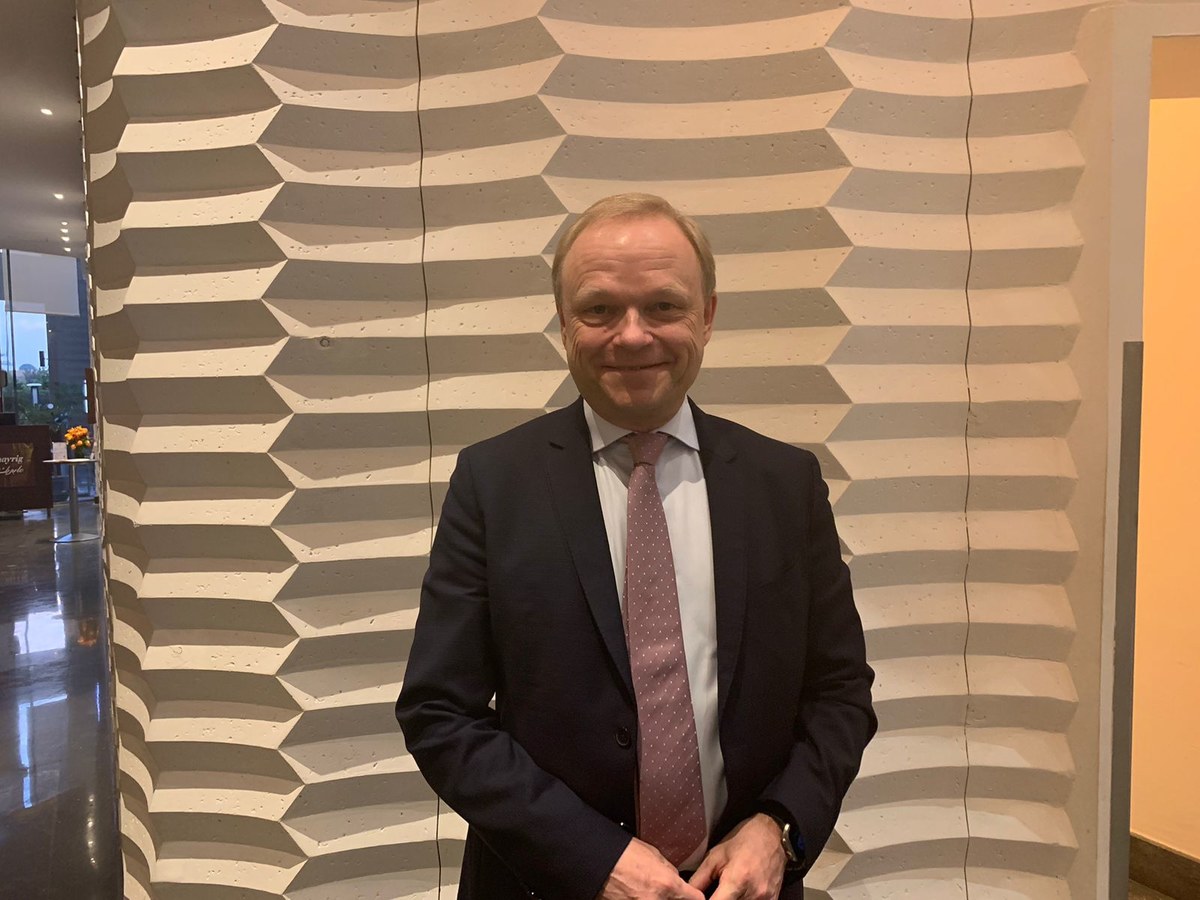RIYADH: Saudi Arabia’s 5G coverage is almost double the global average of 42 percent thanks to “really good operators that have high demands,” according to a senior industry executive.
Speaking to Arab News, Pekka Lundmark, CEO of telecommunications firm Nokia, underlined how the Kingdom’s 77 percent coverage rate marks it out compared to several parts of Europe which are not as well connected.
Lundmark also discussed the upcoming deployment of 5G Advanced technology — expected to enter the market around 2025 — noting that this shift is a step toward the development of 6G.
Reflecting on the connectivity progress in the Kingdom, the CEO said: “The Saudi market is technically advanced. There are really good operators that have high demands, which is good, and then there are some particular characteristics, which you don’t have (anywhere) else and just one example would be the Hajj season where the pilgrims do their rituals.”
He added: “This is an enormous stress test for the network when they take their videos and pictures and want to be connected and you have millions of people in the same place ... the Saudi market is driving us from a global perspective for innovations in network performance.”
Lundmark also stated that 5G Advanced has significant capabilities including supporting emerging technologies such as augmented reality and virtual reality devices. These services require high bandwidth, extremely low latency, high quality of service, and reliability from the network.
“Then on the industrial side, one example is that it will include support for drones, drones will have many applications in different types of physical industries,” Lundmark stated.
Additionally, 5G Advanced will support digital twins, a concept where a digital replica of an industrial site is created.
“There’s a lot it’s going to add. That’s really good because sometimes I hear that, now 5G is ready and now we can start waiting for 6G which will come at the end of the decade. That is completely untrue. There is so much still to do on 5G,” Lundmark stressed.
Furthermore, he further discussed the significance of the Saudi market in this sector and its expected growth in the future, highlighting that despite a weak global performance in 2023, the Middle East and Africa, including Saudi Arabia, experienced 8 percent growth in the industry.
The focus is on collaborating with key operators and developing enterprise customers for industrial digitalization and other initiatives.

Pekka Lundmark, CEO of telecommunications firm Nokia. AN photo
“The market is attractive for investment, the population is young which is not the case in most other parts of the world. There’s a lot of capital available and the ambition level of the actors is very high,” Lundmark said.
He added: “You definitely have the right conditions for investment, and again, when I look globally, of course, there are also other places where there are a lot of reasons to invest.”
During the interview, Lundmark discussed the importance of safety, productivity, and material efficiency, especially in industries like oil and gas.
An integral aspect of the Vision 2030 agenda involves diversifying the Saudi economy, establishing entirely new industries, and embracing the new generation of networks and extensive digitalization.
Lundmark believes this presents a significant opportunity for the Kingdom to “leapfrog directly into digital industries” as the Kingdom is starting from scratch in many areas as opposed to modernizing established systems.
He added: “That is exactly why we feel that the Saudi market is so exciting.”



























